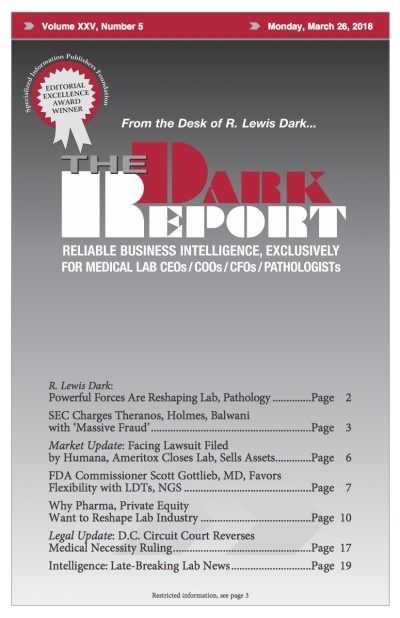MANY LAB EXECUTIVES were concerned last year after a judge in the District of Columbia Circuit Court ruled that clinical laboratories need to determine that all lab test services physicians order are medically necessary. The court also ruled that ordering physicians do not need to determine medical necessity, noted the law firm McDonald Hopkins in …
D.C. Circuit Court Reverses Medical Necessity Ruling Read More »
To access this post, you must purchase The Dark Report.


